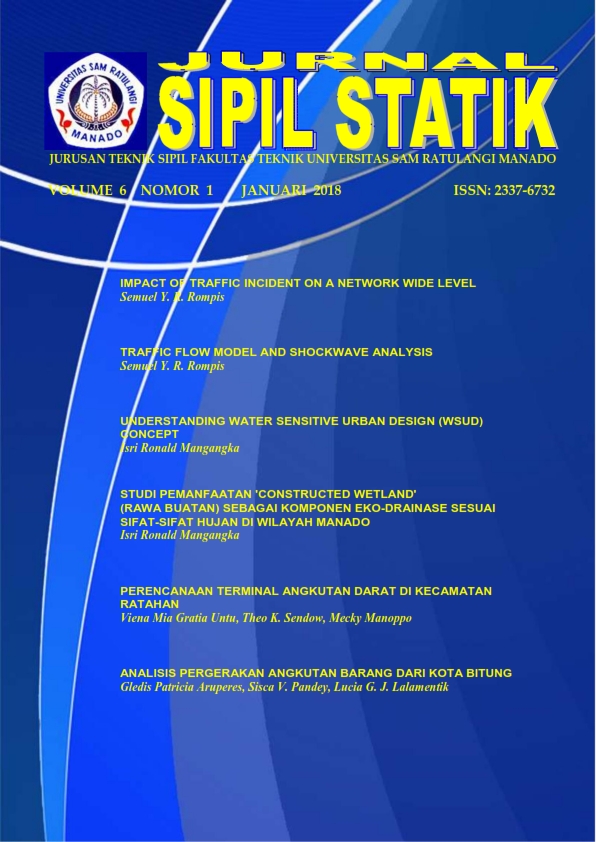UNDERSTANDING WATER SENSITIVE URBAN DESIGN (WSUD) CONCEPT
Abstract
Water Sensitive Urban Design (WSUD) is a multidisciplinary approach to the integration of water cycle management into urban planning and design. It is an internationally recognised concept that offers an alternative to traditional development practices of stormwater management. Water Sensitive Urban Design (WSUD) is an integrated management of stormwater. using a holistic approach to the planning and design of urban development that aims to minimize negative impacts on the natural water cycle and protect the health of aquatic ecosystems.
The WSUD objectives can be achieved by implementing the integration of various Best Planning Practices (BPPs) and Best Management Practices (BMPs). BPPs involve site analysis, land capability assessment and land use planning for enhancing the capability of stormwater management, while BMPs involve managing stormwater quantity and quality with the application of structural and non-structural measures. Non-structural BMPs include development policy, environmental consideration at project site, education programs and law enforcement, while structural BMPs are stormwater treatment measures which are used to achieved the multiple objectives of stormwater management (Lloyd et. Al., 2002).
This literature review paper presents the philosophy of Water Sensitive Urban Design (WSUD), its implementation through the integration of BPPs and BMPs. The paper also explains the application of structural and non-structural WSUD measures.
Key words : WSUD, stormwater management, urban stormwater, urban drainage system

